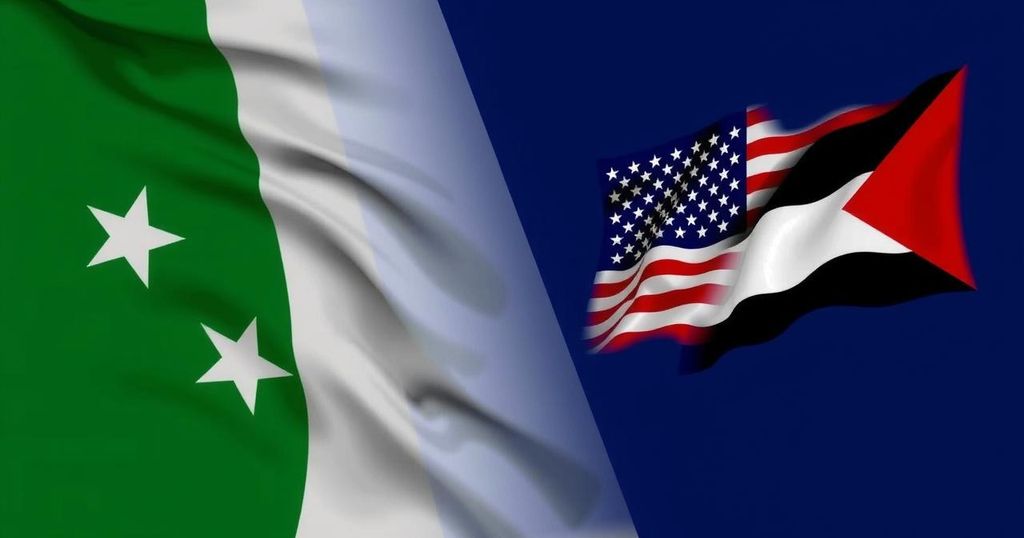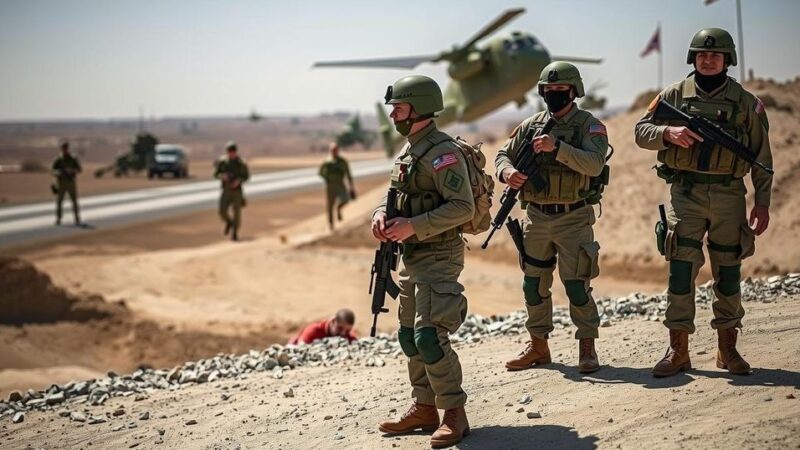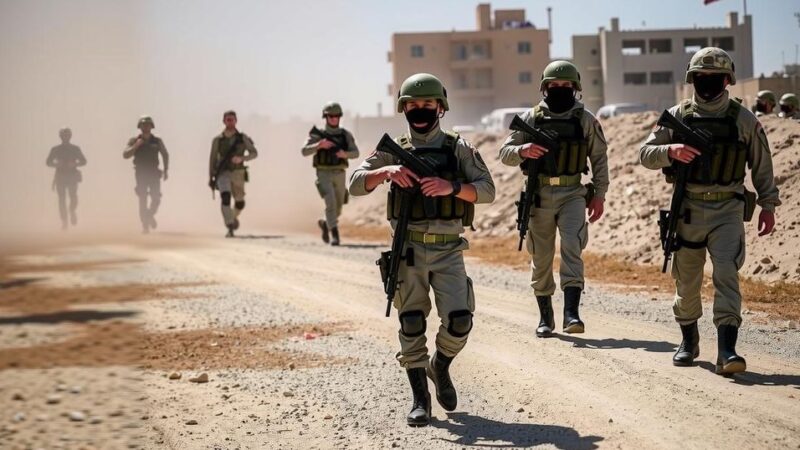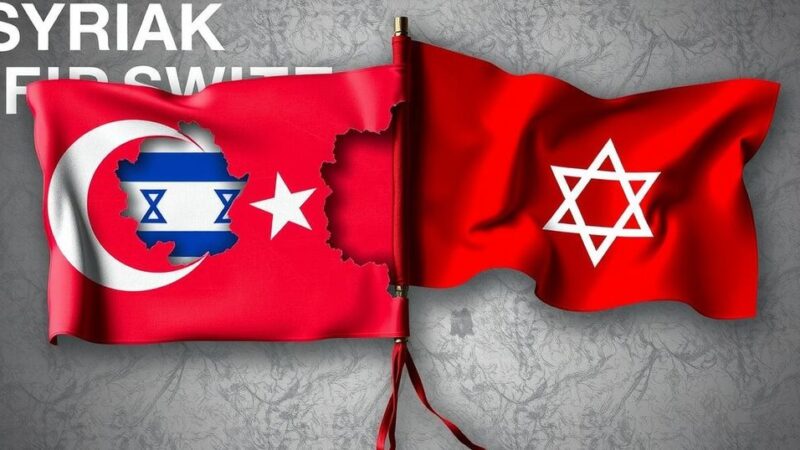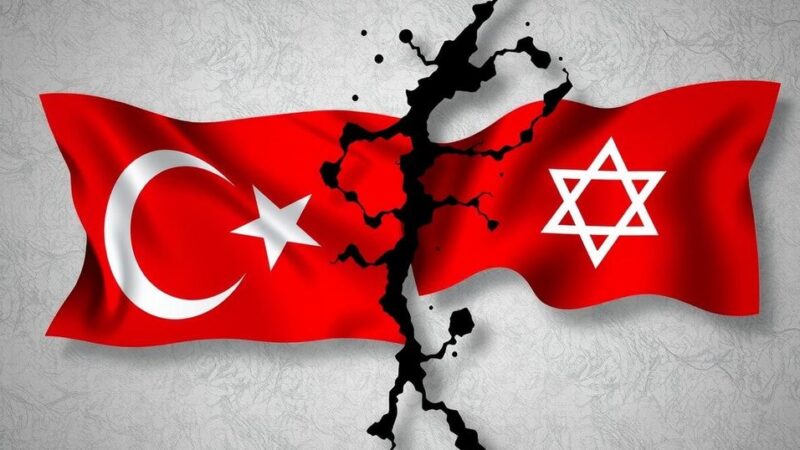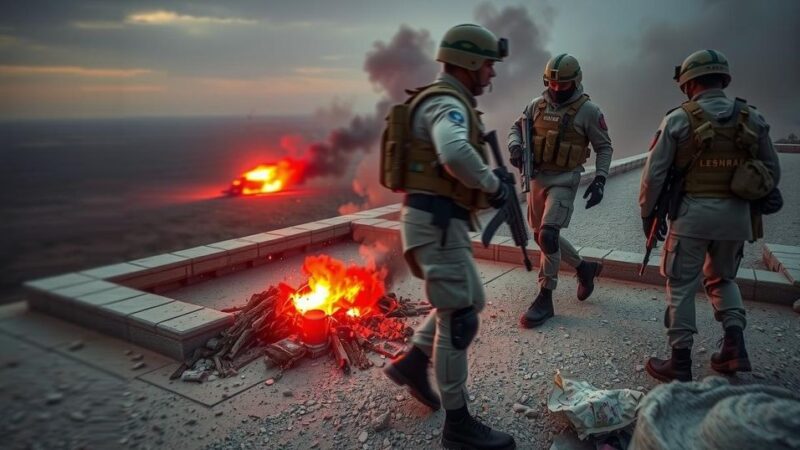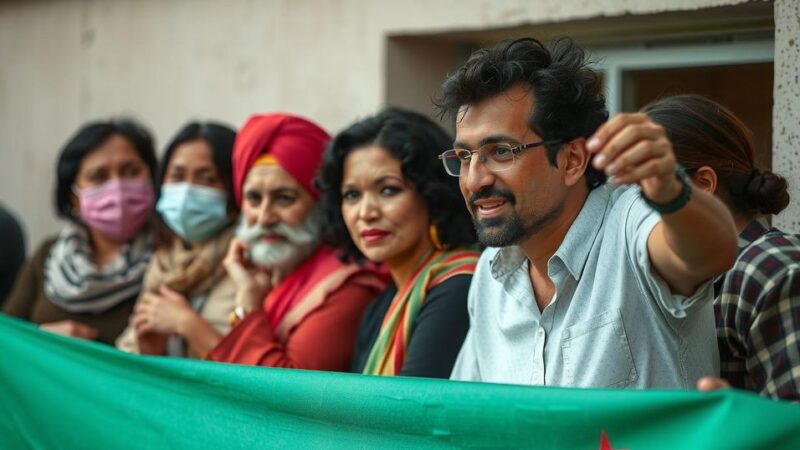Saudi Arabia has abandoned its pursuit of a defense treaty with the US contingent upon normalization with Israel, seeking instead a modest agreement that emphasizes Israeli commitment to establishing a Palestinian state. This change reflects the complexities of Israeli internal politics and stalled peace efforts, as efforts for a defense pact continue amidst fragile regional dynamics and ceasefires.
Saudi Arabia has reportedly shifted its strategy regarding a defense treaty with the United States, as talks of normalization with Israel stall. According to a report by Reuters, the Kingdom is now pursuing a less ambitious defense agreement, emphasizing that any normalization with Israel hinges on Israel’s commitment to fostering an independent Palestinian state. Reports indicate that Crown Prince Mohamed bin Salman insists that real progress on this front is necessary, referencing the foundational principles of the 2002 Arab Peace Initiative.
Israeli Prime Minister Benjamin Netanyahu is keen on formalizing relations with Saudi Arabia as it would signify a pivotal acceptance of Israel in the Arab world. However, the Israeli government’s internal dynamics pose a challenge, as any potential movement towards a two-state solution could jeopardize Netanyahu’s coalition. Consequently, both Riyadh and Washington appear to be aiming for a scaled-back defense pact before President Joe Biden’s term concludes in January.
Previously, Saudi Arabia’s ambitions included a comprehensive defense accord with the US alongside improved military access and nuclear cooperation in exchange for recognition of Israel. However, with Israel’s steadfast rejection of Palestinian statehood—a prerequisite for Saudi normalization—the Kingdom’s focus has shifted to achieving a simpler defense arrangement.
This shift comes against a backdrop of fragile ceasefires in the region, particularly following recent hostilities between Hezbollah and Israel. President Biden has emphasized the importance of promoting peace and integration in West Asia, indicating that the US remains committed to facilitating a dialogue between Israel and Saudi Arabia that encompasses a viable pathway to a Palestinian state.
The topic of Saudi Arabia’s diplomatic relations with Israel is fundamentally intertwined with the broader Arab-Israeli conflict, specifically the issue of Palestinian statehood. The 2002 Arab Peace Initiative served as a framework for Arab nations to achieve normalization with Israel, contingent on Israel’s acceptance of a two-state solution. Saudi Arabia has traditionally played a leading role in this regional discourse. The complexity is heightened by internal Israeli politics, where any movement towards addressing Palestinian aspirations poses risks to the coalition government. The fluctuating dynamics in the region and the US’s involvement are critical in shaping potential agreements between these nations.
In conclusion, Saudi Arabia’s recalibrated approach to a defense pact with the United States symbolizes a significant shift influenced by the stagnation surrounding Palestinian statehood discussions. The Kingdom seeks to maintain its stance on normalization with Israel while navigating the political intricacies within Israel. The evolving geopolitical landscape, combined with the US’s commitment to fostering peace in the region, will be vital in determining the future of Saudi-Israeli relations and the broader Arab-Israeli peace process.
Original Source: thecradle.co

